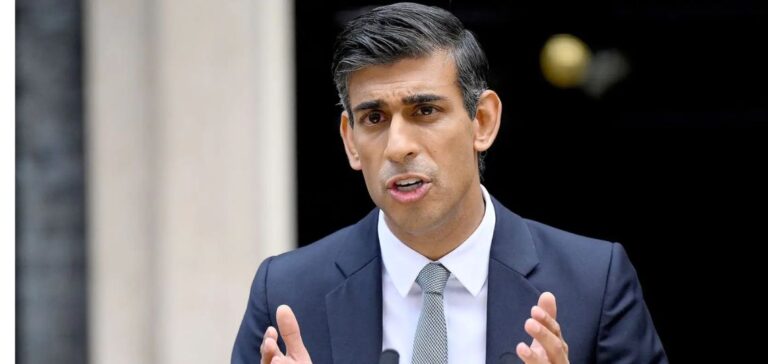Britain’s new Prime Minister Rishi Sunak wants to reintroduce the moratorium on controversial hydraulic fracturing, which allows for the production of shale gas and oil, lifted last month by his predecessor Liz Truss, Downing Street said Wednesday.
This moratorium on hydraulic fracturing had been introduced in 2019 by the Conservative executive because of the risk of seismic tremors, but Liz Truss had decided to lift it in England “to strengthen energy security” in the context of the war in Ukraine.
On Wednesday, in his first face-to-face meeting with the Labour opposition in Parliament, Rishi Sunak said he was “sticking to the (Tories’) agenda on this issue.
The 2019 Conservative Agenda emphasizes that the ban on hydraulic fracturing cannot be lifted until “the science categorically shows that it can be done safely.”
Downing Street confirmed that Rishi Sunak wanted to respect this program in this regard.
This summer, when he was running to succeed Boris Johnson, Sunak said he was in favor of hydraulic fracturing “if local communities support” the technology.
Liz Truss’ lifting of the moratorium had sparked anger and concern among environmental advocates, who argue that hydraulic fracturing causes earthquakes in addition to pollution risks and provides little additional energy supply.
Greenpeace welcomed the reversal announced on Wednesday and “called on Sunak to also stop issuing new exploration licenses for oil and gas”.
During her 49 days in office, Liz Truss had also announced that she wanted to re-examine the country’s trajectory towards carbon neutrality and promised a post-Brexit deregulation policy with the possible removal of hundreds of environmental protection laws.
She also appointed Jacob Rees-Mogg, known for his borderline climate-skepticism, as Energy Minister.
Rishi Sunak, who became Prime Minister on Tuesday, emphasized to British parliamentarians his “commitment” to respect the agreements of the COP26 which took place last year in Glasgow, “because we want to give our children an environment in a better state.






















